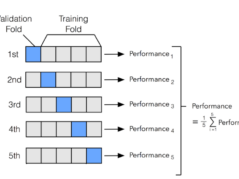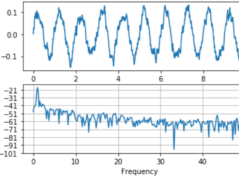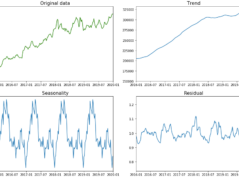Basics of Stock Market, Basics That A Beginner Should Know
The stock market (also known as the equity market) is a collection of markets where stocks (pieces of ownership in businesses) are traded between investors. The stock market can be used to measure the performance of a whole economy or particular sectors of it. The most common indexes are the Dow Jones Industrial Average (DJIA), S&P 500, and Nasdaq Composite.
A stock exchange is a physical location where stocks and other securities are traded between investors. There are many different stock exchanges around the world, each with a list of stocks that can be traded. The largest stock exchange in the world is the New York Stock Exchange (NYSE), followed by NASDAQ and Tokyo Stock Exchange.
Two Stock Exchanges in India are the Bombay Stock Exchange And National Stock Exchange.
The S&P BSE Sensex (S&P Bombay Stock Exchange Sensitive Index) is a large-cap stock market index that tracks the performance of 30 stocks listed on the Bombay Stock Exchange. It is a price-weighted index. The National Stock Exchange of India Ltd. (NSE) operates the NIFTY 50-stock index, which is also a price-weighted index.
How does the stock exchange work?
There are two main types of the stock market: the primary market and the secondary market
The primary market is where new stocks are first sold to investors. The secondary market is where stocks are bought and sold after they have been originally sold in the primary market.
The stock market is important because it allows businesses to raise money by selling stocks to investors. Investors can make money by buying stocks when they are cheap and selling them when they are expensive. This creates a system where businesses can grow and create jobs, and investors can make money by taking a risk with their money.
How can a beginner start investing in stocks? what is a Demat account & Trading Account?
For beginner investors, it can be confusing and downright daunting to try and get started. The first thing you need to do is open a Demat account. A Demat account is a type of bank account that allows you to buy, sell, and hold stocks and shares. It's important to find a reputable bank or brokerage firm to open your account with- there are many scams out there in the investment world, so do your research!
Once you have your Demat account set up, you need to start doing your homework. Learn about the different types of stocks available, what factors affect stock prices, and how the stock market works.
You can also start investing with smallcase one of the best platforms for beginners to start investing as you can create a long-term portfolio in just 2 clicks. Log in with your Demat account. Discover 500+ portfolios for new investors & long-term wealth creation! Try smallcases!
Only 5 % of the actively managed funds outperform the market. quantace sees it as an opportunity to demonstrate our Quantitative capabilities & skills to out-perform the market. We offer affordable Subscription Model Portfolios which out-perform passive ETFs
some of the best performing portfolio's for you are:
Quantace Research | Energizer Powerhouse - Energy Ace Stars (smallcase.com)
Quantace Research | Bluechip Freedom (FREE) (smallcase.com)
Quantace Research | Bluechip Citius - Aggressive (smallcase.com)
Bull markets vs. bear markets (when to buy and sell shares)
In any market, there are always buyers and sellers. When the buyers are more plentiful and willing to pay a higher price than the sellers, the market is in a bull market. In a bear market, the opposite is true; the sellers are more numerous and drive prices lower.
Bull markets are often associated with economic prosperity, while bear markets are often linked to recessions or periods of financial instability. The length of a bull or bear market can vary significantly; some may only last a few months while others can persist for years.
Many factors can contribute to whether a market is bullish or bearish. Economic conditions, investor sentiment, and news events can all play a role in shaping trader behavior and moving prices.
The function of Share Markets
The stock market plays an important role in the economy by providing price transparency, liquidity, and price discovery. Price transparency allows investors to compare the prices of different stocks and make informed investment decisions. Liquidity ensures that investors can buy and sell stocks quickly and at a reasonable price. Price discovery helps to determine the fair value of a stock by allowing investors to buy and sell shares in an open market.
The stock market is a complex system with many participants. Some traders buy and sell stocks to make a profit. There are market makers who provide liquidity by buying and selling stocks. And some hedgers may use Derivatives to protect their investments.
How Stock Markets Are Regulated? What is SEBI?
Most nations have a stock market, and each is regulated by a local financial regulator or monetary authority, or institute. The SEBI (security and exchange board of India) is responsible for protecting the interests of investors in the securities market, promoting and regulating the securities market, and developing self-regulatory organizations in India.
One of SEBI's main functions is to regulate stock exchanges in India. It has issued guidelines governing how stock exchanges should operate, including rules on trading hours, order types, and listing requirements. SEBI also supervises stockbrokers and other intermediaries in the securities market and enforces rules against insider trading and fraudulent activities.
In recent years, SEBI has been increasingly active in regulating initial public offerings (IPOs) and private equity investments.
Disclaimer: This information has been collected through secondary research and is only for educational purposes, quantace team is not responsible for any error.






